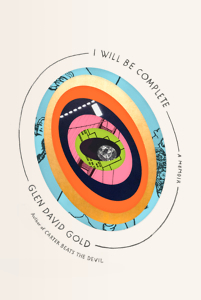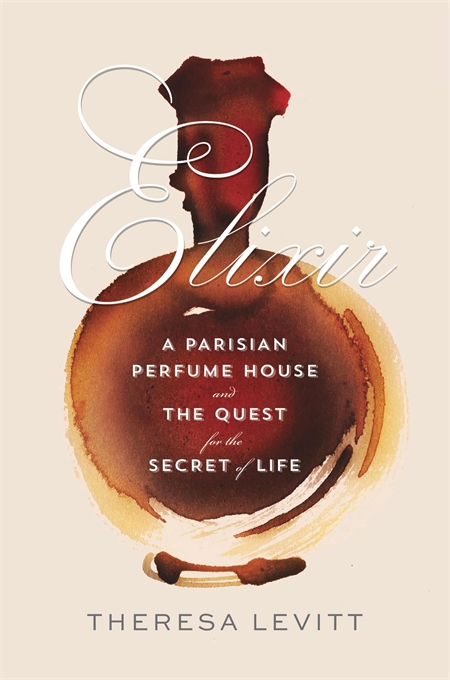A Lavish Mural of 1970s Indulgence
I Will Be Complete is Glen David Gold’s unsparing account of growing up in the care of the Me Generation
As an adolescent in California during the 1970s and ’80s, my wife compiled a personal archive of entertaining—and often tragic—stories of families brought down by the sex-and-drugs ethos of the Me Generation. Partner swapping, cocaine binges, jetting from America to Europe: these were staples of upper-middle-class women and men coming of age in the tumultuous ’60s.

Glen David Gold’s vibrant memoir, I Will Be Complete, covers the same time and place with an urgency that seems to suggest he must tell his story in order to survive. His arc tracks the culture’s, from fashion trends to punk bands. He keeps it real and immediate while probing psychic scars inflicted by his mother, a ravishing “Linda Evans”-like Englishwoman transplanted to the West Coast.
An only child raised in Corona del Mar, a suburb of Los Angeles, Gold was a nervous, asocial prodigy whose life was ripped apart by divorce. His father, a Chicagoan, moved back to his hometown and remarried while Gold’s mother moved to San Francisco and took up with Peter Charming, part-time lover and part-time pimp, a loquacious extrovert who sponged off women until they could bear it no longer. Gold straggled along, shuttling back and forth between parents, apartments, and schools, never quite sinking down a taproot. (To underline the point he titles his early chapters with the numerous addresses where he lived.)
I Will Be Complete paints a lavish mural of a culture of self-indulgence. Gold’s boyhood plays out against a backdrop of swingers, “Biofeedback,” men groping in corridors, and The Manhattan Transfer’s impromptu concerts in his mother’s apartment. Despite Charming’s manifold flaws, Gold bonded with him: “He was a clotheshorse, which meant expensive bell-bottom jeans faded perfectly to a sky blue, a huge brass belt buckle, Pierre Cardin patterned polyester shirts with two buttons undone. … He smelled of just enough cologne, was fastidious about his fingernails, and wore a tiny Star of David around his neck.” Gold picks his way through the whirl around him, the older writer finding courage in his younger self. There’s a hilarious riff in which he imagines his life as a 1970s version of Auntie Mame, with his mother in the starring role.
 Gradually she breaks from Charming’s gravity and tacks from city to city, relationship to relationship, as she spirals down, hooking up with a younger, violent drifter who rapes her and threatens Gold. She’s by far the most arresting character in I Will Be Complete, a narcissistic monster whose desires and impulses are “like the raw pieces of brightly colored glass you’d insert into a kaleidoscope.” Gold devotes the bulk of the memoir to wrestling with the havoc his mother has wreaked throughout his life, in scene after harrowing scene. One can’t help but feel the anger curdling at the back of his throat, the burn of a swallowed sob.
Gradually she breaks from Charming’s gravity and tacks from city to city, relationship to relationship, as she spirals down, hooking up with a younger, violent drifter who rapes her and threatens Gold. She’s by far the most arresting character in I Will Be Complete, a narcissistic monster whose desires and impulses are “like the raw pieces of brightly colored glass you’d insert into a kaleidoscope.” Gold devotes the bulk of the memoir to wrestling with the havoc his mother has wreaked throughout his life, in scene after harrowing scene. One can’t help but feel the anger curdling at the back of his throat, the burn of a swallowed sob.
But narcissism can beget narcissism, and abandonment can beget abandonment. The memoir’s second half depicts Gold’s aimless moves from girlfriend to girlfriend, including a torturous and drawn-out sexual liaison with an older dancer. (Paging Dr. Freud.) He chronicles his own relationships, though no romance ever reaches intimacy: “They had me on ampicillin, amoxicillin, Zovirax, codeine, and erythromycin. … But I knew what was actually going on. My body was doing all it could to protect me from actually falling in love.”
Writing offers a way out of his miasma. Gold finds sustenance in literature, working as a clerk in bookstores, even joining a “literary fraternity” while a student as Wesleyan: “They wrote sestinas. They lived in apartments off campus. They took group showers and had mushroom trips and knew how to cook tofu and perform African dances.” He beautifully captures the poses of undergraduates: “[T]hey hosted readings by Joyce Carol Oates and Trevanian and John Irving and there was supposedly old graffiti by Jack Kerouac in their basement, which they called a grotto. After readings, some of them snapped their fingers in place of applause and the rest gave tired but patient looks to the finger-snappers.”
Gold catches the bug and labors over dead-end novels, landing at the prestigious M.F.A. program at the University of California at Irvine, where he meets his future wife (and now ex-wife) Alice Sebold, author of the bestselling The Lovely Bones, eventually writing Sunnyside and Carter Beats the Devil, his own two bestselling novels. Textured moments, sharp-eyed observations, and a knack for satire lend the memoir its richness. As social canvas and dense yet readable memoir, Will Be Complete shines.
 Hamilton Cain is the author of This Boy’s Faith: Notes from a Southern Baptist Upbringing and a finalist for a 2006 National Magazine Award. A native of Chattanooga, he lives with his family in Brooklyn, New York.
Hamilton Cain is the author of This Boy’s Faith: Notes from a Southern Baptist Upbringing and a finalist for a 2006 National Magazine Award. A native of Chattanooga, he lives with his family in Brooklyn, New York.


